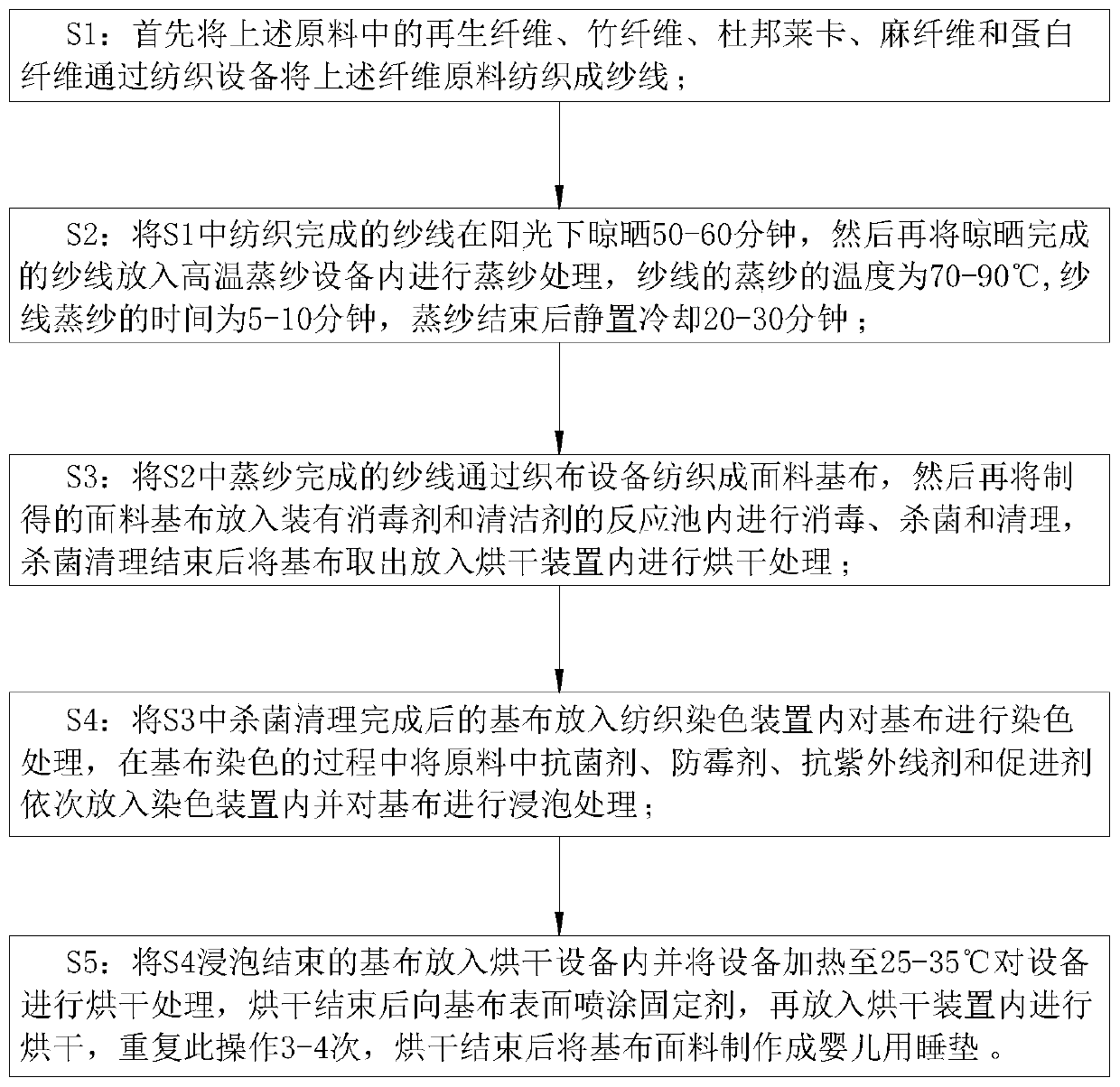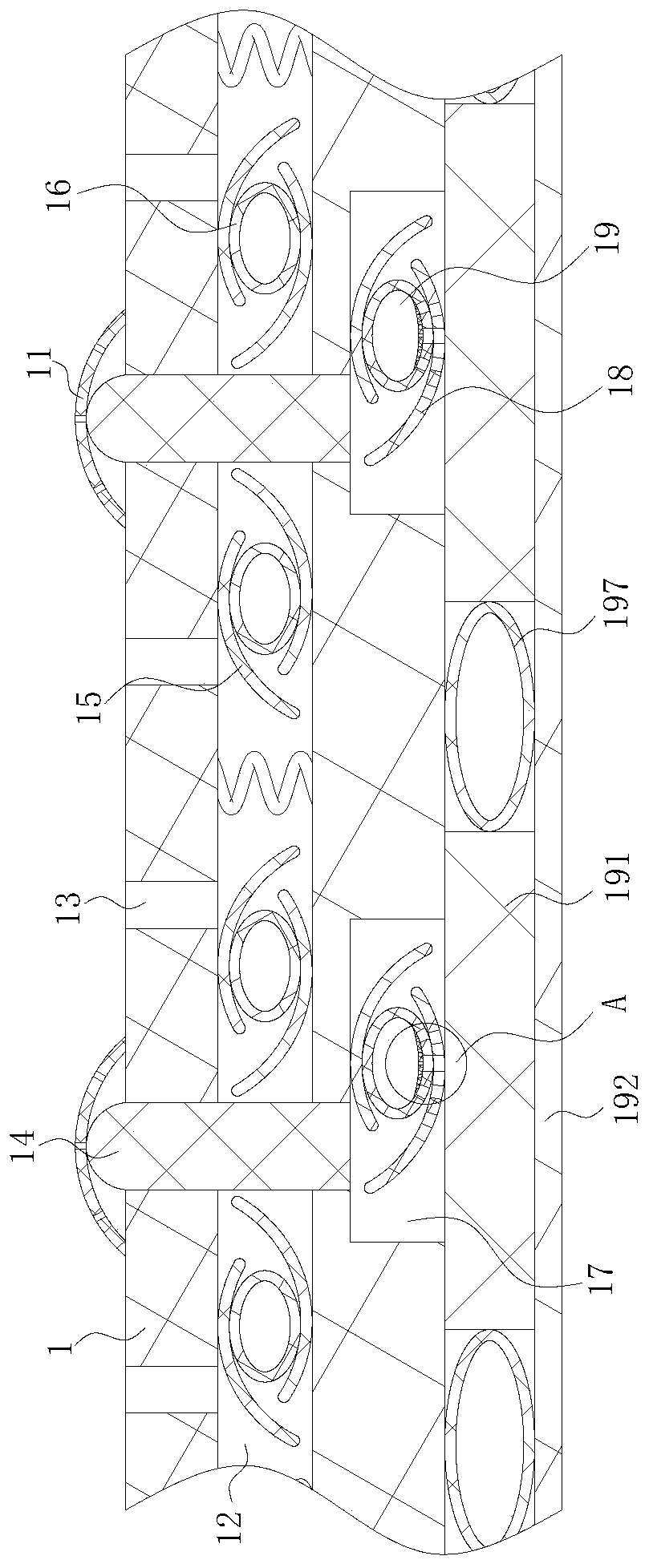Antibacterial regenerated fiber textile fabric
A technology of regenerated fibers and textile fabrics, applied in the field of textile fabrics, can solve problems such as bacteria removal, antibacterial performance decline, and baby's skin effects, and achieve the effects of reducing content, improving water absorption efficiency, and reducing damage
- Summary
- Abstract
- Description
- Claims
- Application Information
AI Technical Summary
Problems solved by technology
Method used
Image
Examples
Embodiment approach
[0043] As an embodiment of the present invention, the antibacterial agent in the raw material is a biguanide antibacterial agent; the antibacterial agent contains 20-30% chitosan;
[0044] The biguanide antibacterial agent in the raw material is an organic antibacterial agent with strong bactericidal ability. In the present invention, the bactericidal ability of the fabric can be improved, and it also has strong stability, which will not cause the dyeing on the fabric to fade, and at the same time Biguanide antibacterial agent is a kind of non-toxic antibacterial agent, uses in the present invention and can not cause harm to human body, and the chitosan contained in the antibacterial agent is the deethyl ester derivative of chitin, is a kind of natural antibacterial agent, It not only has strong antibacterial properties, but also has anti-inflammatory and pain-relieving effects. In the present invention, the anti-bacterial properties of the fabric can be further improved, and a...
PUM
 Login to View More
Login to View More Abstract
Description
Claims
Application Information
 Login to View More
Login to View More - R&D
- Intellectual Property
- Life Sciences
- Materials
- Tech Scout
- Unparalleled Data Quality
- Higher Quality Content
- 60% Fewer Hallucinations
Browse by: Latest US Patents, China's latest patents, Technical Efficacy Thesaurus, Application Domain, Technology Topic, Popular Technical Reports.
© 2025 PatSnap. All rights reserved.Legal|Privacy policy|Modern Slavery Act Transparency Statement|Sitemap|About US| Contact US: help@patsnap.com



